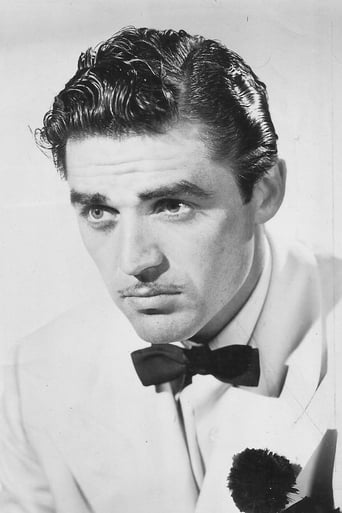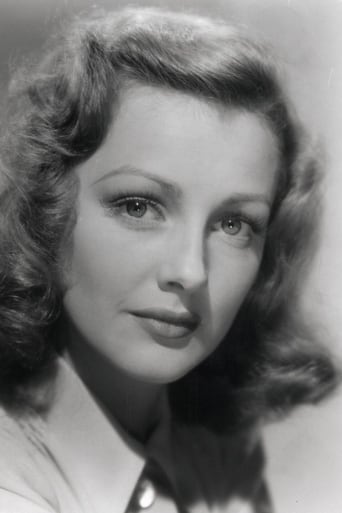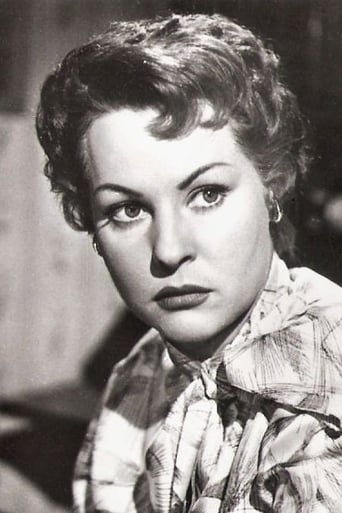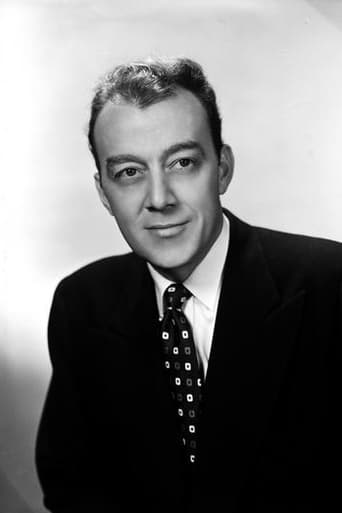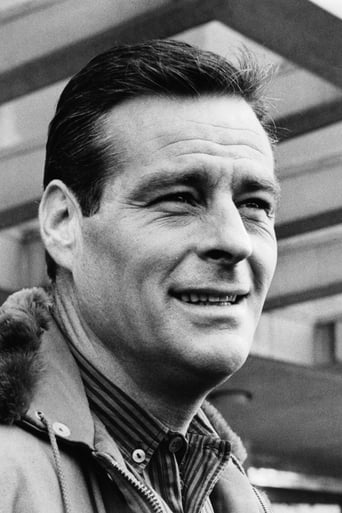Afouotos
Although it has its amusing moments, in eneral the plot does not convince.
AutCuddly
Great movie! If you want to be entertained and have a few good laughs, see this movie. The music is also very good,
Hadrina
The movie's neither hopeful in contrived ways, nor hopeless in different contrived ways. Somehow it manages to be wonderful
Stephanie
There is, somehow, an interesting story here, as well as some good acting. There are also some good scenes
Richard Chatten
After ten years directing musicals and comedies, Andrew Stone with 'Highway 301' turned to making the thrillers for which he remains most fondly remembered. The distinctive 'documentary' style of his later films like 'The Steel Trap' (1952) and 'The Last Voyage' (1960) - using natural sound and authentic locations - is hinted at in the opening robbery sequence, but much that follows resembles a conventional studio-shot gangster film. In their enormous, immaculate suits Steve Cochran and the rest of his gang at all times look as if they're about to go to a wedding in those big black cars they're driving. Described by Bosley Crowther at the time as "a straight exercise in low sadism", its a far more brutal film than Stone's later thrillers, which tend to take a more benign view of humanity and have more upbeat endings.
calvinnme
... and he didn't even need much dialogue! This film is about the tri-state gang that robbed banks in North Carolina, Virginia, and Maryland. The title comes from the actual Highway 301, which was a byway for the gang which actually operated in the 1930's not the 40's when this film was made.The beginning is basically like a "Crime Does Not Pay" short from MGM, in which leading officials of the three states involved talk about the gang. The voice over continues through parts of the film.Cochran plays the head of the gang, George Legenza, and seems to enjoy just BEING a criminal as much as or more than the money it brings him. He shoots his common law wife dead after she gets boozed up and starts mouthing off. He does so without breaking a sweat, without a change of expression, and just walks away, not even interested in the elevator operator who sees the whole thing, just assuming that given what he has just seen he will keep his trap shut. He does.One gang member, Bill Philips, brings a wife back home from Canada (Gaby Andre as Lee) after he has had a short vacation, and she is basically innocent of the entire enterprise. She thought her husband and his associates were salesmen, but soon learns the truth but is basically trapped into going along with them. Bill promises nothing will happen to her while he is around, but then he is NOT around after a robbery goes wrong and he is killed.Lee tries to make her escape but Legenza tracks her down on the dark streets and shoots her in a prolonged and tension filled scene. She lives, though, and now Legenza has to come up with a way to finish the job in a hospital filled with policemen guarding her. How will this all work out? Watch and find out.I remember this film when I was in fifth grade, home sick from school, and didn't even know its name until it showed up on Turner Classic Movies decades later. I did remember Lee walking down the dark streets after she learns her husband is dead with the voice over saying "Bill said you were safe while he was around, but now he is not around anymore. What will happen to you now?". I always thought this was hitting the poor girl over the head for basically being a victim of circumstance.Legenza may have been the leader, but some of the other gang members, given their actual names here, did things that were pretty brazen too. For example, Wally Castle is sixth billed here as Robert Mais. Mais actually was in jail in Richmond, sentenced to death, and in spite of the fact he was a known long time habitual criminal with habitual criminals as friends, was allowed to receive those criminal friends as visitors! One of them slipped him a pistol, and he and Legenza escaped after a shootout that left one guard dead. Later a deputy committed suicide over his feelings of guilt in allowing the convicted murderers to escape. You won't see any of THAT in THIS film, because it is the production code era and makes law enforcement look a wee bit incompetent.Still it is a tense and action packed B noir. Recommended.
Spikeopath
Highway 301 is written and directed by Andrew L. Stone. It stars Steve Cochran, Virginia Grey, Gaby André and Edmond Ryan. Music is by William Lava and photography by Carl Guthrie. Story is based on a real gang of robbers known as The Tri-State Gang, who terrorised and thieved in North Carolina, Virginia and Maryland. Plot chronicles their activities and the pursuit of them by the authorities. It opens with a trio of state governors cringe worthily pumping up the hard sell, for what we know is going to be a "crime doesn't not pay" message movie. I half expected the Star Spangled Banner to come booming out the speakers and an FBI version of Uncle Sam to flash on the screen telling us to come join the Crime Stoppers! Thankfully, once the cringe stops the film kicks in with a ruthless bank robbery and never looks back from that moment. Led by cold blooded George Legenza (Cochran), this gang don't wear masks, they are ruthless but not beyond error, and tagging along are molls who are either oblivious to the gang's activities - fully complicit - or ignorant. It's a pressure cooker dynamic and as we soon find out, women are not going to be treated well here at all, if they are in the way or a threat to safety, they will cop it. Highway 301 is a violent film with some cold characterisations, and there may even be a subtle homosexual relationship between two of the gang members. Andrew Stone's direction is tight and in tune with the jagged edges of his characters, with barely a filler shot used in the whole running time, while his scene structure for dramatic impacts work very well. Refreshingly there are no cheat cut-aways either. His cast are on form, with Cochran looming large with an intense and thoroughly dislikable portrayal leading the way, while Guthrie photographs with shadows prominent and a couple of night time street scenes that are visually noirish. Unfortunately Stone's screenplay hasn't the time to put depth into the principal players, the gang are bad and greedy, the women scratching around for purpose or brains, but that's all we know. It's the one flaw in an otherwise great crime movie. 8/10
Martin Teller
The criminal exploits of a small group of gangsters working in the Maryland/Virginia/North Carolina area. The docudrama subgenre of noir tends to produce few masterpieces and a lot of mediocrities. This one is closer to mediocrity, but has a few worthwhile assets. The intro, with "crime does not pay" lectures by the governors of the three states, sets the self-righteous, judgemental tone for the film's narration and messages. The story follows a standard formula, with early successes by the gang followed by the net of the law gradually closing around them and forcing their hand. The characterizations are fun but one-note. Steve Cochran in the lead has an edgy brutality but not much else. However, the action sequences are well done, and there is one nail-biting, suspenseful scene as one of the gangster's gals tries to escape. The photography is quite nice as well, at least during the gloomy night scenes.

